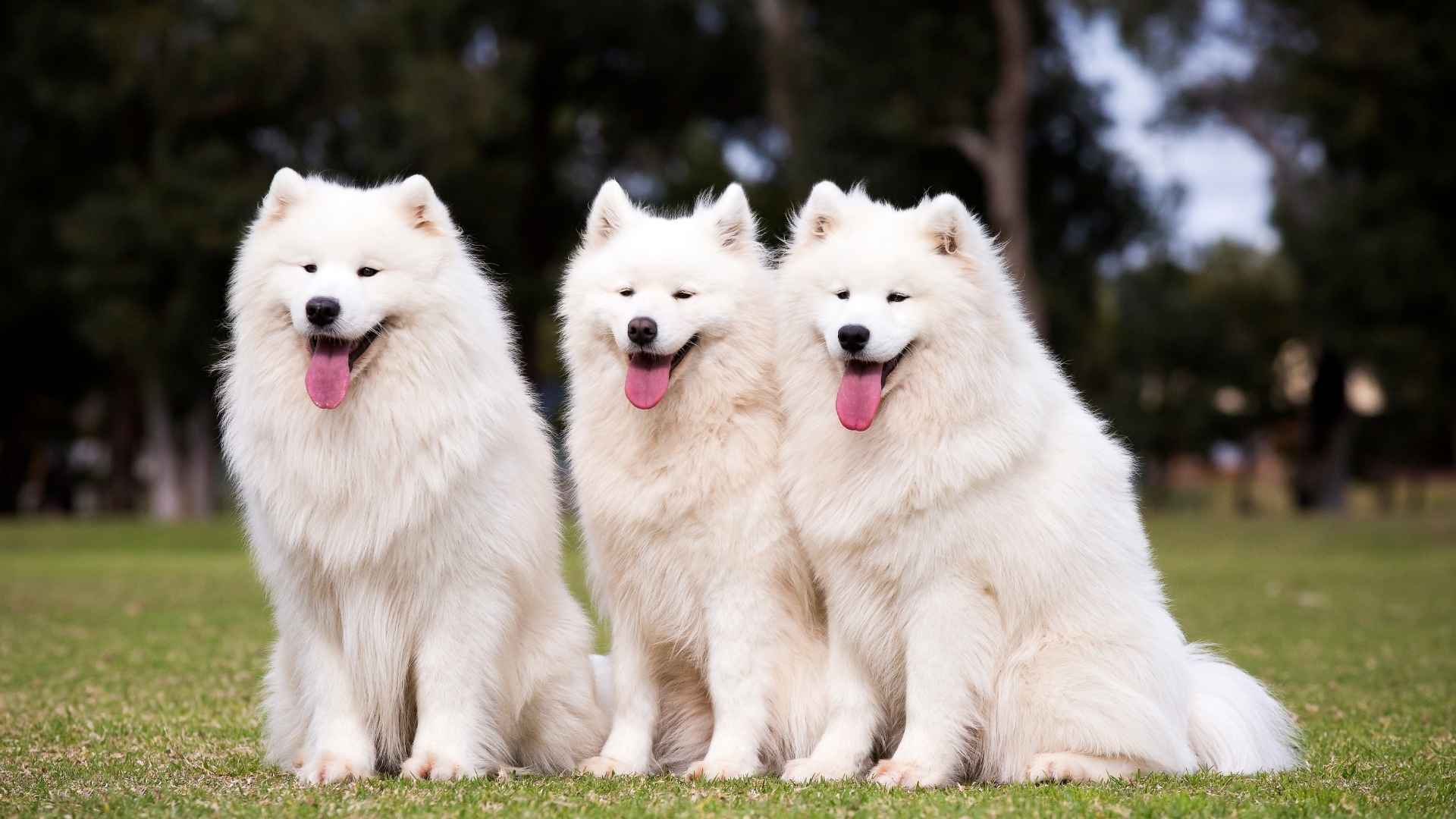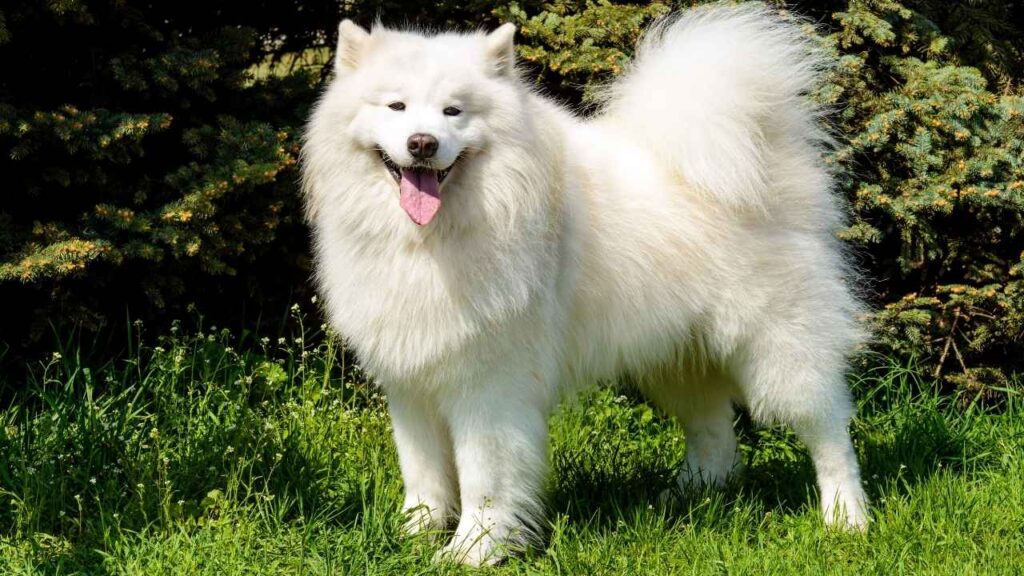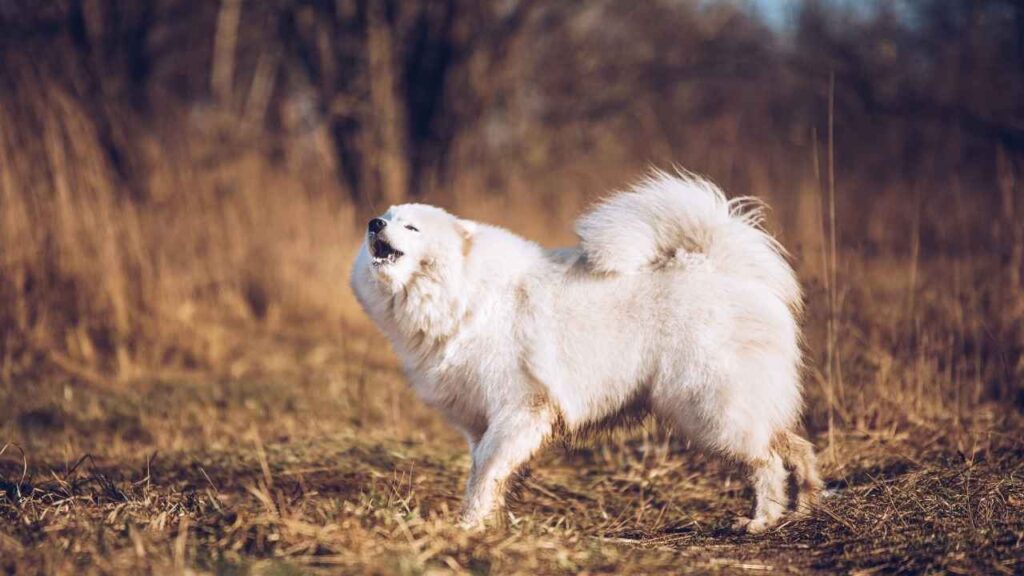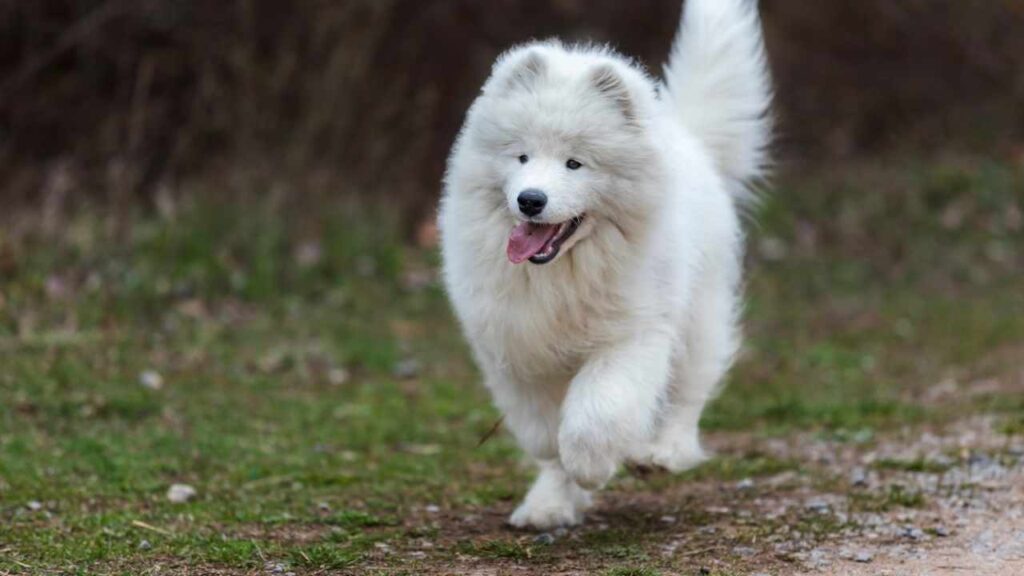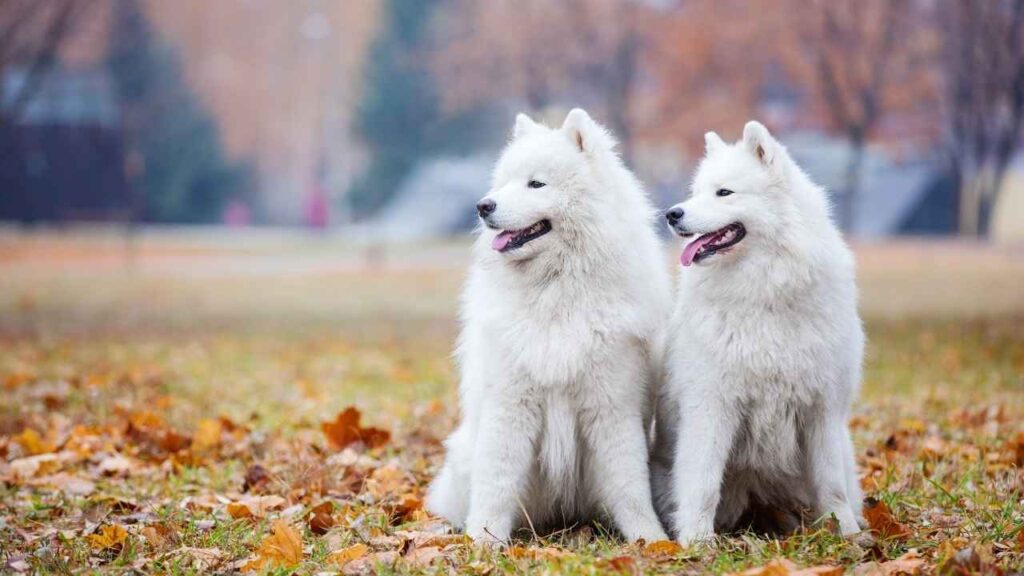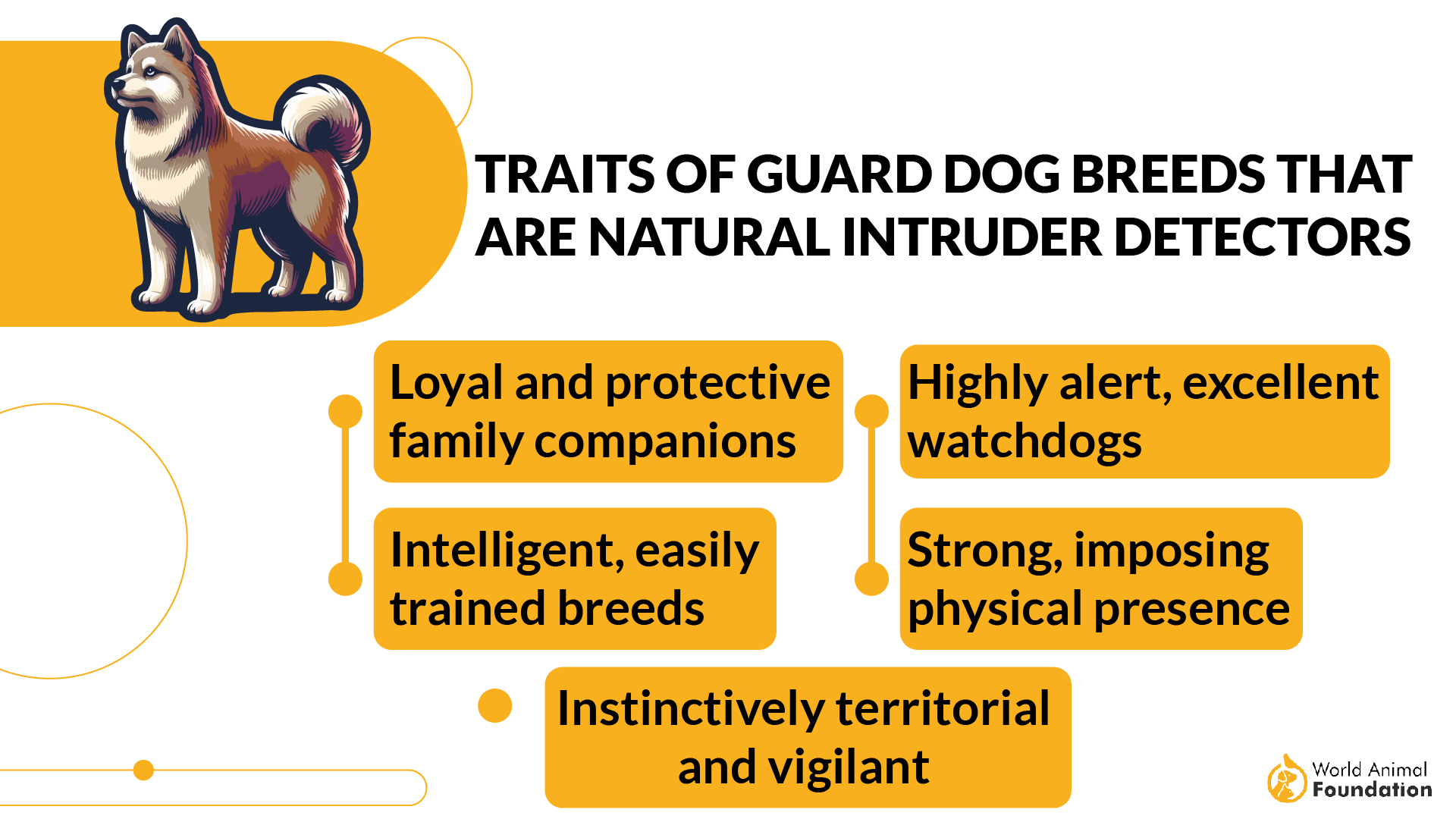When it comes to selecting the perfect guard dog, many might picture a fierce and imposing breed, but the fluffy and friendly Samoyed may not be the first to come to mind. Known for their striking smile and sociable nature, Samoyeds are celebrated as affectionate companions rather than conventional protectors. However, there’s more beneath their cuddly exterior than meets the eye. In this article, we delve into the characteristics of Samoyeds to assess whether this breed can offer both companionship and security, revealing what potential owners should consider when evaluating their suitability as guard dogs.
The Samoyed, affectionately known as the Sammie, is a medium-sized working dog with a rich history rooted in the Samoyede people of northwestern Siberia. These versatile dogs were once relied upon for various tasks such as hunting, herding reindeer, hauling sleds, and even keeping their owners warm by sharing body heat during frigid nights.
While their working ancestry has given them a strong-willed temperament at times, Samoyeds are known for being friendly, gentle, and deeply devoted to their families.
While these fluffy, affectionate Arctic dogs have long been treasured as loyal family companions, many wonder if their protective instincts make them suitable as guard dogs. In this article, we’ll explore the traits and temperament of Samoyeds and evaluate whether they possess the qualities needed to serve as effective guard dogs.
Understanding the Samoyed Breed as a Guard Dog
Appearance of the Samoyed
The Samoyed is a medium-sized dog with a strong, muscular build, a curled tail, and large, dark eyes that give them an alert and friendly expression. Standing 19 to 23 inches tall at the shoulder and weighing 35 to 65 pounds, they are often nicknamed “The Smiley Dog” because of their upturned mouths, which always seem to be smiling.
AKC notes that this unique feature not only gives them a cheerful appearance but also helps prevent drooling and the formation of icicles around their mouths in cold weather.
Their thick, fluffy double coat is one of their most striking features. The soft undercoat provides warmth, while the outer coat is tougher and stands away from the body, giving them a puffy, cloud-like appearance. Although they may look bigger than they actually are because of their fluffy white coats, their grand and fierce appearance can still make them an effective deterrent, as their presence might make potential intruders think twice.
Samoyed’s Barking Tendencies
Samoyeds are known for being quite vocal, often using barking as their main way of communicating. Whether they’re excited, anxious, or trying to alert their owners to something unusual, Samoyeds will often bark to express themselves. Their barks are usually high-pitched and loud, which can be a challenge if you live close to neighbors.
However, this tendency to bark can also be useful, as their loud bark can act as a warning or deterrent to potential intruders. While their vocal nature might not be ideal in every situation, it’s part of their playful and expressive personality.
Training and Socialization for Samoyeds
The Samoyed is a highly trainable working dog breed that responds well to instruction, thanks to their intelligence and eagerness to please. However, training a Samoyed requires time, patience, dedication, and plenty of compassion.
Historically, these dogs developed a strong bond with humans, as the Samoyede people relied on them for warmth and companionship during harsh Arctic nights. WebMD points out that this close connection has made Samoyeds incredibly social and affectionate, but they can become miserable and even destructive if left isolated for long periods.
To bring out their full potential as guard dogs, Samoyeds need early and consistent training. Proper training helps them harness their protective instincts in a controlled way, teaching them to recognize real threats while staying calm in everyday situations. Socialization is equally important, ensuring they can interact with strangers and other animals without becoming overly aggressive.
The Samoyed’s Protective Nature
Samoyeds are known for their protective yet gentle nature. They are incredibly loyal and devoted to their families, including being very caring and watchful around children. While they are generally friendly and affectionate, Samoyeds have a natural instinct to pay attention to their surroundings and will often bark to alert their owners if a stranger approaches.
Although they are not naturally aggressive, they will stand their ground and protect their loved ones if they sense danger. This makes them effective in guarding situations where their alertness and presence serve as a deterrent, even if they rely more on warning than physical aggression.
Temperament of the Samoyed
The Samoyed is a lively and adventurous companion that brings joy to people of all ages. With a moderate energy level, this breed enjoys outdoor activities but is just as happy to relax at home in between outings. However, their playful nature can sometimes lead to mischievous behavior, and they may chew or damage household items if not properly engaged.
Like other spitz breeds, Samoyeds are known for their independence and can be easily distracted, which can make obedience training challenging.
That said, with positive, reward-based training, they are quick learners and respond well to guidance. Samoyeds are generally friendly with new people, other dogs, and pets, and they are extremely affectionate toward their families. According to Britannica, while they make excellent watchdogs due to their alertness, they are not suited for protection work, as they are more likely to be friendly than aggressive.
Samoyed Vigilance and Alertness
According to Purina, Samoyeds are naturally protective of their homes and quick to alert their owners to any unusual activity. With their sharp hearing and keen eyesight, they are highly aware of their surroundings and vigilant to any changes. While they rarely take aggressive action, no intruder will go unnoticed, as Samoyeds are quick to bark and announce any presence.
Their innate hunting instincts mean they may chase after small animals, so it’s important to keep them leashed when outside their fenced yard. Though not aggressive guard dogs, their alertness and protective nature make them excellent watchdogs, ensuring their family is always aware of anything out of the ordinary.
Samoyeds’ Limitations as Guard Dogs
While Samoyeds possess some qualities that make them suitable for watchdog roles, they have several limitations when it comes to being effective guard dogs, which potential owners should be aware of.
-
Friendly with Strangers: Samoyeds are rarely reserved around strangers, making them more inclined to greet unfamiliar faces rather than deter them. This sociable disposition means that potential intruders may not view them as a threat, reducing their effectiveness as guard dogs.
-
Lack of Aggression: While they are alert and attentive to their surroundings, Samoyeds are not naturally aggressive or territorial, making them less suited for owners looking for a dog with a strong protective instinct or intimidating presence.
-
Barking Tendencies: While they bark to alert owners, this can be useful for alerting owners to the presence of strangers or unusual activity, it can also become a nuisance if excessive barking disturbs neighbors, especially in quiet areas.
-
Easily Distracted: Their playful and energetic nature might make it difficult for them to maintain focus in a guarding role, as they may be easily distracted by other stimuli. This lack of sustained focus, combined with their friendly demeanor, limits their overall effectiveness as a true guard dog.
Maintenance of Health and Grooming
Samoyeds are a high-maintenance breed when it comes to grooming due to their thick, fluffy coats. Daily brushing is recommended to keep their fur clean and free of tangles, with a more thorough grooming session once a week. If their coat gets wet or muddy, it’s best to let it dry first before brushing, as this makes it easier to remove dirt.
In colder climates, Samoyeds typically shed their undercoat once a year, usually in the summer. However, in homes with central heating, they may shed twice a year. Like other large breeds, Samoyed puppies are prone to hip dysplasia, so feeding them a large-breed puppy food that helps slow their growth can reduce the risk of this condition.
Conclusion
While Samoyeds have many qualities that make them excellent family dogs, they are not ideal guard dogs. Their friendly and affectionate nature, often referred to as the Samoyed smile, makes them more inclined to greet strangers warmly rather than deter them.
Despite being active dogs with a history of working alongside humans to herd reindeer and pull sleds in harsh conditions, Samoyeds are not typically aggressive and lack the protective instincts found in more traditional guard dog breeds. According to the American Kennel Club, their alertness and frequent barking can make them good watchdogs, but their primary role in the home is as loyal, loving companions.
Though Samoyeds shed and their thick coats require regular grooming, they remain a favorite among modern breeds for families who value affectionate pets that get along well with other pets and family members.
Owners should also be aware that the breed requires proper care, including monitoring for health issues like Samoyed hereditary glomerulopathy. With their strong history as working dogs, Samoyed-registered pups make wonderful indoor companions, but their charm and friendly demeanor may not be well-suited for serious guarding tasks.
FAQS About Samoyeds as Guard Dogs
Do Samoyeds have a reputation for being good guard dogs?
No, Samoyeds do not have a strong reputation for being good guard dogs. While they are alert and will bark to notify their owners of unusual activity, their friendly nature makes them less effective at deterring intruders. Samoyeds are more known for their social and affectionate personalities, which makes them better suited as companions rather than guard dogs.
Are Samoyeds naturally aggressive when acting as guard dogs?
No, Samoyeds are not naturally aggressive, even when acting as guard dogs. While they are alert and may bark to signal unfamiliar activity, their friendly and gentle temperament means they are unlikely to show aggression. Samoyeds are more likely to greet strangers than to act aggressively, making them less effective than traditional guard dogs.
Do Samoyeds tend to bark frequently in a guard dog role?
Yes, Samoyeds tend to bark frequently in a guard dog role. They are naturally alert and will use barking to signal any unusual activity or the presence of strangers. While this can be beneficial in alerting their owners to potential threats, their frequent barking can also become excessive and may be disruptive, especially in quieter environments.
Is special training needed for Samoyeds to become effective guard dogs?
Yes, special training is needed for Samoyeds to become effective guard dogs. Training can help channel their alertness and barking tendencies in a controlled way, teaching them to differentiate between real threats and everyday situations. Early socialization and consistent reinforcement are essential to help them develop the focus and discipline needed for guarding roles.
Are Samoyeds better suited as watchdogs or guard dogs?
Samoyeds are better suited as watchdogs rather than guard dogs. They are naturally alert and quick to bark when they notice something unusual, making them good at alerting their owners to potential issues. However, their friendly and non-aggressive nature means they are not likely to deter intruders or protect property in the way a traditional guard dog would.
What are the drawbacks of relying on a Samoyed as a guard dog?
The main drawbacks of relying on a Samoyed as a guard dog are their friendly, non-aggressive nature, which makes them more likely to greet strangers than deter them. They tend to bark frequently, which can become a nuisance, and their playful, easily distracted personality may reduce their focus in a guarding role. Additionally, their fluffy, approachable appearance isn’t intimidating, making them less effective at scaring off intruders.
Samoyeds, known for their friendly and sociable nature, are not ideal guard dogs. Bred originally as herding and sled dogs, they thrive on human interaction and are more likely to greet strangers with enthusiasm than suspicion. Their alertness and protective tendencies can make them decent watchdogs, alerting owners to unusual activity. However, their lack of aggression and strong desire for companionship limit their effectiveness in guarding roles. While Samoyeds excel as loyal family pets, prospective owners seeking dedicated protection should consider breeds specifically trained for guarding. Ultimately, Samoyeds offer love and companionship rather than formidable defense.

